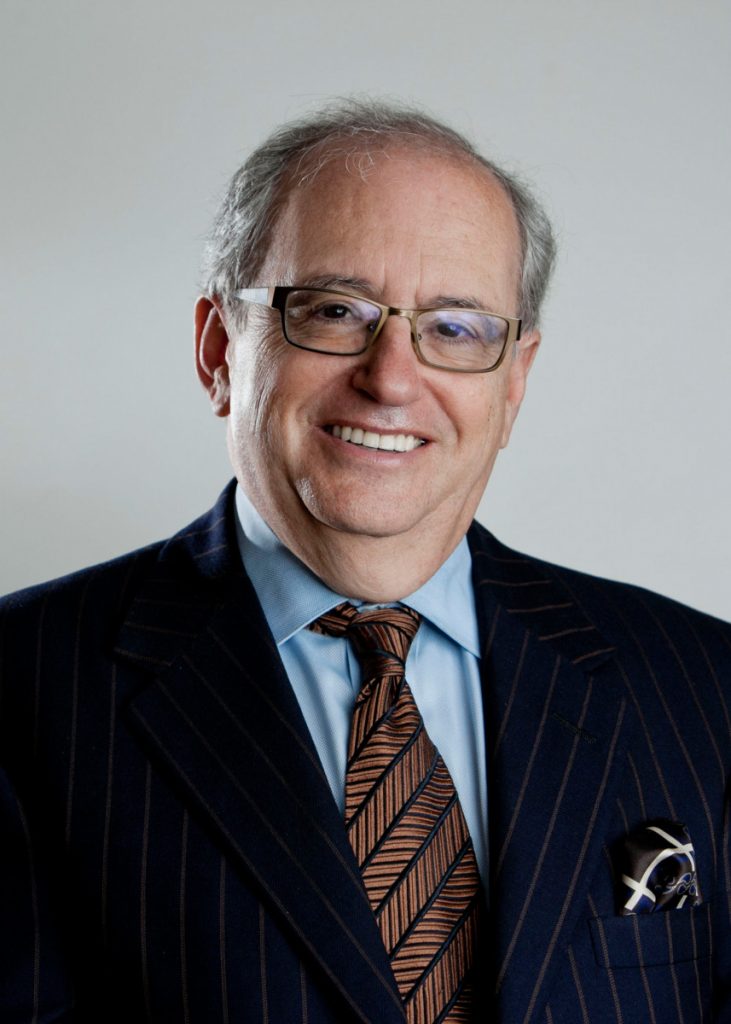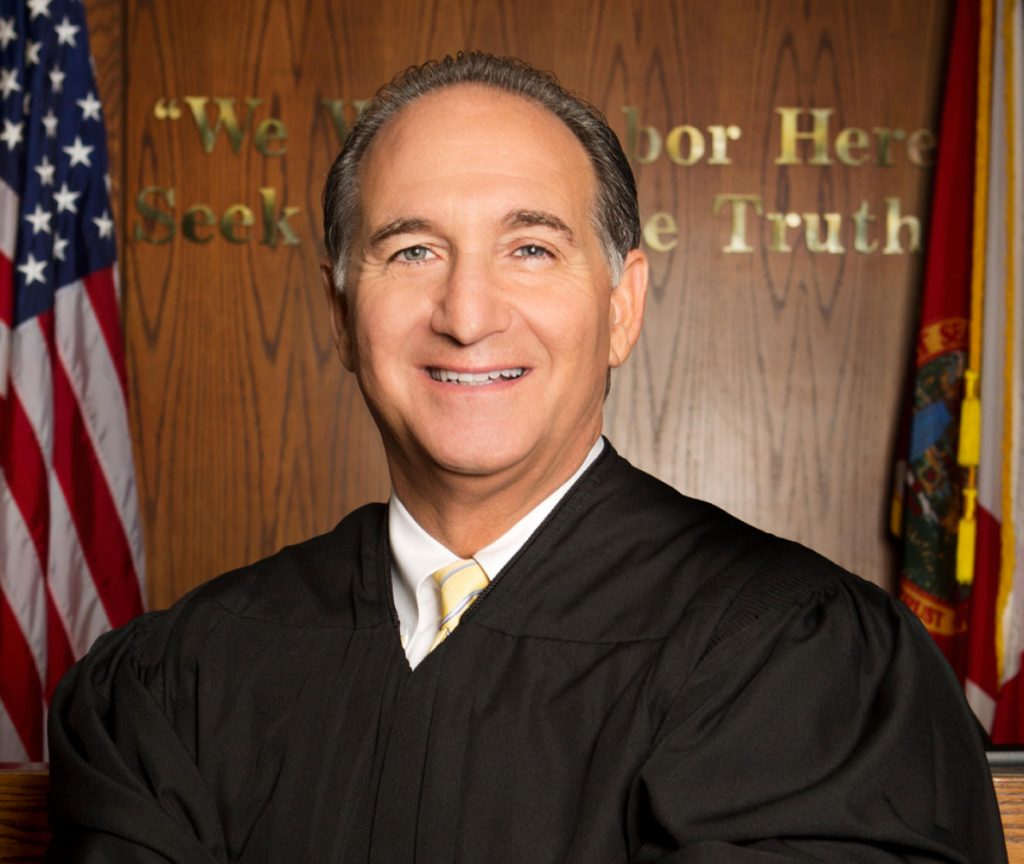LAURA PHILION – COPY & DIGITAL EDITOR

Political analyst Norman Ornstein knows firsthand how badly the system can fail.
Ornstein’s son, Matthew, died accidentally in early 2015 after a long struggle with serious mental illness. Since he was in his 30s, his parents had no legal control over him — unable to help their son through his refusal of treatment and anosognosia (inability to recognize how sick he was), Matthew’s parents watched their son suffer until his untimely death.
“Our mental health system is broken,” Ornstein said.
Ornstein, a senior fellow at the American Enterprise Institute, and his wife, Judy Harris, founded the Matthew Harris Ornstein Memorial Foundation. Its aim is to honor Matthew’s legacy and to advocate for mental health reform. Harris is working to change the standard for treatment, so cases like Matthew’s are actionable while would-be patients are still able to be helped.
“Often, you literally have to have a gun at your head or a knife at someone else’s throat,” Ornstein said, “or you can’t qualify.”
At 10:30 a.m. Tuesday, Aug. 17 in the Amphitheater, Ornstein, former National Institute of Mental Health Director Thomas Insel and Associate Administrative Judge of the Eleventh Judicial Circuit Court Steven Leifman will have a joint discussion on the state of mental health treatment in the U.S., with an emphasis on crisis response and reshaping care for the seriously mentally ill. Their talk is the second of Week Eight’s Chautauqua Lecture Series, themed “The Human Brain: Our Greatest Mystery,” and can also be viewed online through a subscription to the CHQ Assembly Video Platform. Ornstein will also lead a master class, “The Threats to American Democracy,” at 10:30 a.m. Friday at Smith Wilkes Hall.
“When you change the way the police deal with those with serious mental illnesses,” Ornstein said, “you can change how they operate in general.”
Insel, who was the director of NIMH for 13 years, stepped down in 2017 to move to the private sector.
“I wanted to move out of academia,” he said. “I’d been thinking a lot about impact — our science … was stunning, moving at a ridiculously exciting pace.”
At the same time, he said, suicide rates were skyrocketing. The mental health of the nation was declining. He couldn’t make sense of it.
And then, at a talk he was giving, a man stood up while Insel was giving a summation of recent discoveries.
“A guy stood up and said, ‘You don’t get it. My son has schizophrenia … Our house is on fire, and you’re talking about the color of the paint,’ ” Insel said. “It crystallized what I’d been thinking.”

Insel’s upcoming book, Healing: Our Path from Mental Illness to Mental Health, characterizes the question of treatment as one of civil rights. The so-called mental health crisis is not a new thing, he writes; it is a crisis of care surrounded by harmful misconceptions and ways of thinking.
“There are 10 million people (with serious mental illness) who nobody will ever hear about,” he said, “who will die 20 to 25 years before they should.”
Working with California Gov. Gavin Newsom, Insel now spearheads California’s version of the “988 Bill,” an initiative where instead of calling police for a mental health crisis, people can call 988 to a call center that will dispatch a mobile health van complete with a social worker, peer counselor and a nurse.
“The path to mental health for this country is the three Ps,” Insel said. “People, place and purpose. Those don’t come in a pill — they require a whole range of connections.”
President John F. Kennedy implemented pieces of a system in the 1960s, he said, but by the 1980s, President Ronald Reagan gutted it.
“We built a national system,” Insel said, “and then we dismantled it.”
When Judge Steven Leifman was in his early days on the bench, the parents of a defendant approached him. They wanted to talk to him before he heard their son’s case; they tearfully told him that their son was schizophrenic.
“I assumed there must be a system of care in place,” Leifman recalled. “I was wrong.”
Leifman ended up having to release the defendant because of the minor nature of the charges. There was nothing he could do for the man, even though he had had a schizophrenic break in the courtroom.
Something had to change.
Now, with 24 years on the bench, Leifman has helped Miami-Dade County restructure its treatment of the mentally ill. He started the Eleventh Judicial Circuit Criminal Mental Health Project in 2000, and since then, the county’s statistics have dropped astonishingly: 118,000 arrests dropped to 50,000; recidivism rates for misdemeanors went from 75% to 20%; and felony recidivism went from 75% to 25%.

Out of 105,000 mental health-related emergency calls last year, only 98 arrests were made as a result. And police shootings have all but stopped.
“Nobody got shot, nobody got hurt, nobody got killed,” Leifman said.
Leifman’s initiative operates two main prongs: pre-arrest diversion and post-arrest progression.
“We’ve trained 7,600 officers in crisis intervention teams training, where we teach them to de-escalate and take people into treatment,” Leifman said. “It’s saved the county from (handing down) 300 years of jail time and $12 million a year. We were able to close a jail.”
The initiative’s crowning achievement is a seven-story mental health diversion facility, which will open in March 2022. Leifman called it a “one-stop shop for acute cases — the people we walk by every day on the street.” The facility will sport not only psychiatric treatment, but 200 beds, primary care physicians, a courtroom and programs to teach patients new skills.
“It’s not that the care doesn’t exist,” Leifman said. “It’s that most of the care is inaccessible. Instead of kicking people to the curb after adjudicating their cases, we can reintegrate them and help them have a better life.”
Leifman said mental illnesses are like any other illnesses of the body, and that there is less stigma around them than there once was.
“I think the country’s finally waking up,” he said. “… Everyone deserves to be happy and to live a life of hope.”
Ornstein agrees.
“We need to find a better balance,” he said. “ … There are a lot of areas in which we need to work. We are working with (vice president and Emily and Richard Smucker Chair for Education) Matt Ewalt to go beyond the season (and continue the conversation). The infrastructure bill (passed by the U.S. Congress) doesn’t have any mental health infrastructure in it.”
Ornstein concluded: “We need to inform everyone (on treatment). Police, judges, prosecutors, defense attorneys and jailers, too.”




